Walking The Same Path
Old Bondy. Cowboy’s Dream. Three Thin Dimes. Two White Nickels. I was living in the tiny hamlet of Spring Valley, Ohio, in 1975, when I first heard the name, “Old Bondy,” and those three tunes. I was sharing a rundown house on Main Street with Rick Good and fiddler Greg Dearth. Rick played banjo and steel guitar, and I played the upright bass in The Hotmud Family, an Old-time/Bluegrass band. Rick and I were high school buddies and had grown up in nearby east Dayton. Greg was from West Carrollton, just south of Dayton, and played in a bluegrass band called The Hagan Brothers. Oddly enough, there was no one in the band named Hagan. For that matter, there was no one in the Hotmud Family named Hotmud.
Some of the other Hagan Brothers were also living in Spring Valley, including mandolinist Tom “Peach” Hampton, recently graduated from nearby Wilmington College. I was never sure if Peach got his nickname because of his bright red hair, or the fact that he hailed from Georgia. Greg had guested on The Hotmud Family’s first album andPeach guested on the second album. We were one big happy family.
The Seed. That year (1975), The Hagan Brothers were hired to play at the Kent State Folk Festival. Their guitar player had unexpectedly quit the band and Greg suggested they enlist a friend of his to play guitar. Before moving back to the Dayton area, Greg had been an art and design student at Ohio University in Athens, Ohio in the southeast corner of the state, close to the West Virginia border. There, in the early 1970s, Greg had befriended John Hutchison, a guitar player from Barnesville, Ohio. John was older than Greg and fresh out of the Air Force. Folks around Athens mostly knew him as “Lost John,” and he spent his time wheeling and dealing musical instruments and hanging out in the music stores and coffee houses in Athens, performing solo, or sometimes as a duet with his brother, Bob on banjo.
Lost John told Greg he didn’t want to sit in with The Hagan Brothers at Kent State, but he invited Greg and Peach to come to Barnesville sometime, where he and Bob were once again living. Ironically, Peach had spent a lot of time there as a teenager, attending a Quaker boarding school, The Olney Friends School. Soon, Greg and Peach took John up on his offer and traveled down to Barnesville. They met up at “the Big House”– the home of Emma Jane and John W. Hutchison—Lost John and Bob’s parents—where they had raised their four sons. Bob was there with his banjo, and his brother-in-law, Tim Sparkman, was there with a bass fiddle. (Another brother-in-law is legendary Nugget Mandolin maker, Mike “Nugget” Kemnitzer. The nickname came from Lost John.) Everyone had a nickname it seemed. Bob was “Zeke,” or sometimes, “sour Bob.” Tim was “Rock.” Best of all, the boys mostly referred to their dad, affectionately, as “the Seed.”
Emma Jane and the Seed watched as the boys settled in, tuned up, and had a few tunes. Greg remembers, “I looked over at Peach and he was grinning away and his eyes were open wide. Something just clicked, and we all knew it.” That was pretty much the end of The Hagan Brothers, and the birth of The Hutchison Brothers Band.
It was also the beginning of fruitful friendship between Greg and the Seed. As it turns out, the Seed was a highly regarded, local, old-time fiddler with an interest in antiques, coon dogs, and old fiddles. He could play fiddle tunes all day long and not repeat himself. Greg had been collecting and learning tunes for a few years by then, but he’d never heard quite a few of the tunes that the Seed played, and he often got the same reply when he asked the Seed where the tune had come from. With the ever-present cigar clutched between his teeth, he’d chuckle “I learned that one from ‘Old Bondy’.”
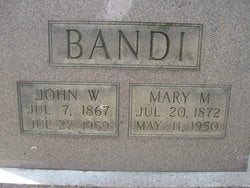
Greg and Peach returned to Spring Valley from Barnesville, but not for long. The Hagan Brothers disbanded and Greg travelled back and forth to Barnesville, learning the Seed’s tunes and swapping fiddles. “The Seed became like a second father to me,” Greg said. “He was a big influence. And we never stopped laughing.” Soon, Greg and Peach moved there, and The Hutchison Brothers Band became a reality. By then, Greg had already been teaching the Seed’s “Old Bondy” tunes to other fiddlers and other bands, including my band, The Hotmud Family. He taught the tunes to The Highwoods Stringband, Tim O’Brien, Kerry Blech, and many other influential musicians and folklorists. Three of Old Bondy’s tunes stand out. Cowboy’s Dream, Three Thin Dimes, and Two White Nickels. Jeff Goehring later made field recordings, in 1977, of the Seed playing these three tunes, accompanied on guitar by Lost John. Mary Gordon and Hilary Dirlam included Three Thin Dimes in their book, The All-In-One Old Time Jam Book Volume II, and used a photo of the Seed on the cover.
The Seed credited Bondy with several other lesser-known tunes as well, like Sleepy Eyed Joe, Rippling Water Jig, Black Rattlesnake, and one that he called the Bondy Special. And thanks mostly to the wide dissemination of these tunes through the efforts of Greg Dearth, many of the tunes have become an important part of the American old-time fiddler’s lexicon.
Back to Old Bondy. Who was he? It’s a question I’ve occasionally wondered about for almost fifty years. There are many old-time fiddle and banjo websites that mention his tunes. There are many YouTube videos of fiddlers playing his tunes. But no one seemed to know anything about him. When the COVID-19 lockdown kicked in, and I had a lot of extra time on my hands, I decided to see if I could track down the elusive Bondy. I started with Greg Dearth.
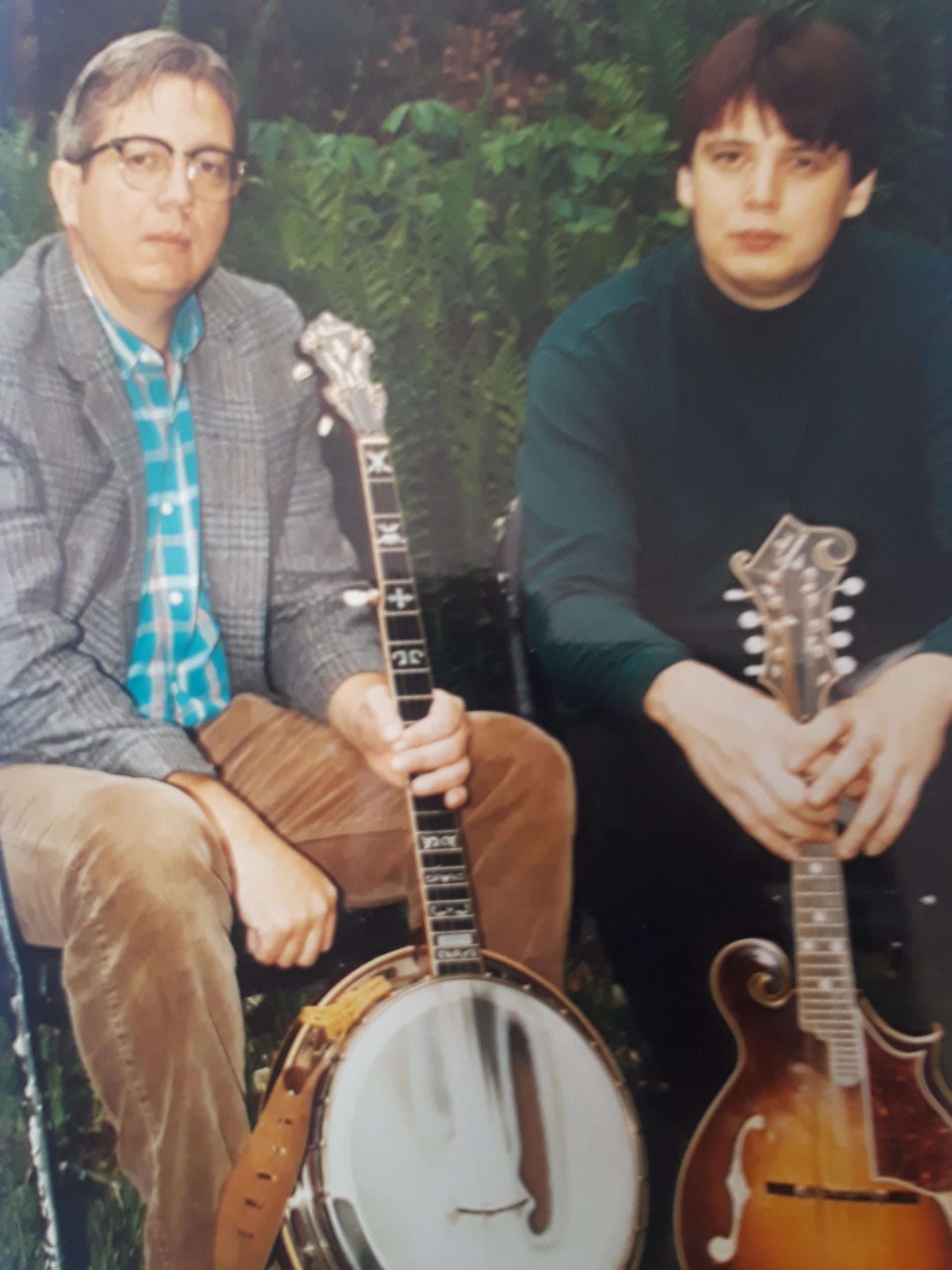
Greg didn’t have much. We talked on the phone about how the name was spelled, and he admitted that back when he was learning the tunes from the Seed, he’d never seen the name written. Greg always assumed it was probably B-o-n-d-y, although he’d seen it spelled B-o-n-d-i on various websites. Given the Hutchison family’s fondness for nicknames and diminutives, I wondered if the name could actually have been simply, Bond.
Greg called me back a day later. “After I talked to you, I had some second thoughts,” he said, “So, I called old Losty.” (Over the years, Lost John had been shortened to Losty.) “He said Old Bondy was John Bandi, and he’s pretty sure it was spelled B-a-n-d-i.”
Hmmm. Greg and I mused on that for a while, wondering why the Seed had pronounced it the way he did, but came up with nothing. Greg said I should talk to Losty, because as a boy, he had met Bandi, and had gone to his house in Woodsfield, Ohio, in Monroe County.
I wanted to wait on calling Losty, hoping to find something I could surprise him with. That evening, armed with John Bandi’s real name, I started to Google. Amazingly, I found a photo of his tombstone, and a bit of info, on a site called Findgrave.com. If nothing else, old Bondy was certainly old. He was born in 1867 in Sardis, Ohio, in Monroe County, and lived in the county his entire life, dying in 1959 at the age of 92. He was a Methodist, and married Mary Magdalene Hunnell in 1888. They had several children. His parents were Nicholas and Rachel Ann (nee Smith) Bandi. I Googled some more, and found the grave of Bandi’s father and mother, again with a little bit of information. And there it was. His father, Nicholas, was born in 1843—in Switzerland! Bingo! I immediately called my Swiss buddy who lives nearby, Jurg Butler, and he assured me that B-a-n-d-i would have been pronounced like Bondy. “I knew quite a few Bandi’s, growing up in Bern,” Jurg said. “He was probably Bernese.” After a little more digging, I discovered that many Swiss immigrants had settled in Monroe County, so much so that it was often referred to as “little Switzerland.” There is even a Switzerland Township.
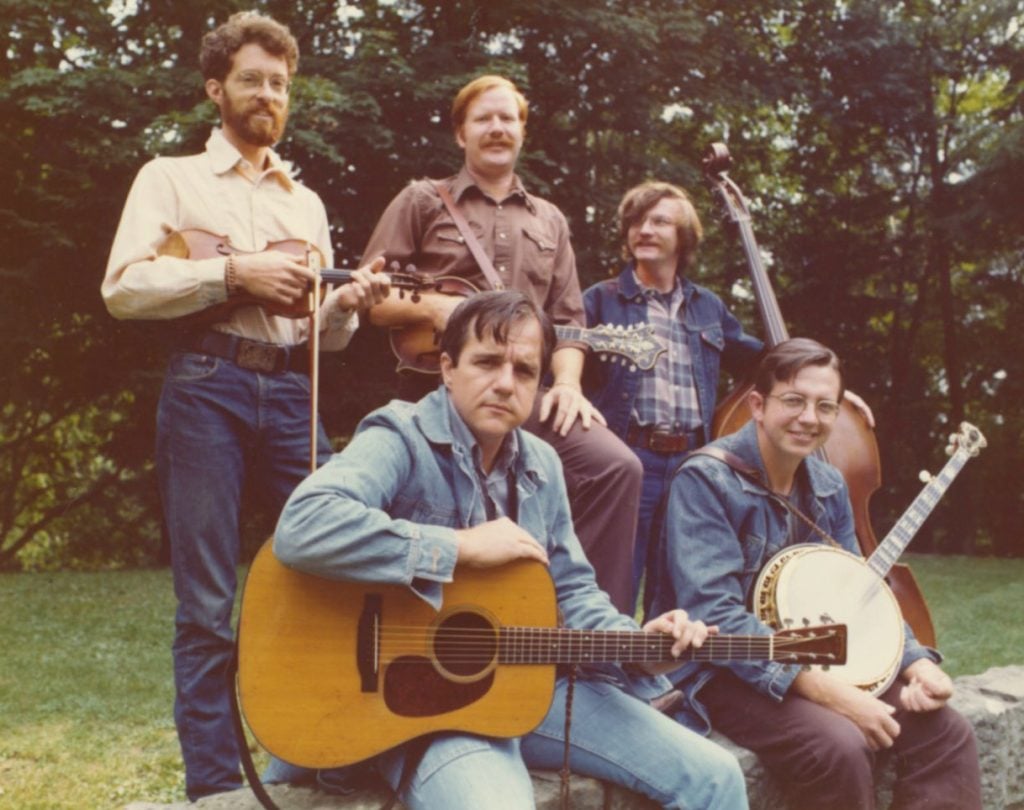
The next day, I tried to track down any Bandi family members still living in the southeastern part of Ohio, and came up with nothing. I searched the Hunnell name, on Bandi’s mother’s side, and finally connected with a great grandnephew, John Hunnell. He told me that he remembered Bandi, but said his brother, Charles, was more of the family historian. Problem was, due to some medical issues, Charles can no longer speak. But we texted and emailed. Charles wrote:
“I can remember John. I was 12 years old when he died. He lived next door to two of his wife’s siblings. That was after they all had moved to town from their farms in Green Township. Today I live about 1 mile from the farms and 1 mile from where they are all buried. I travel a road named Bandi Ridge Road every day.
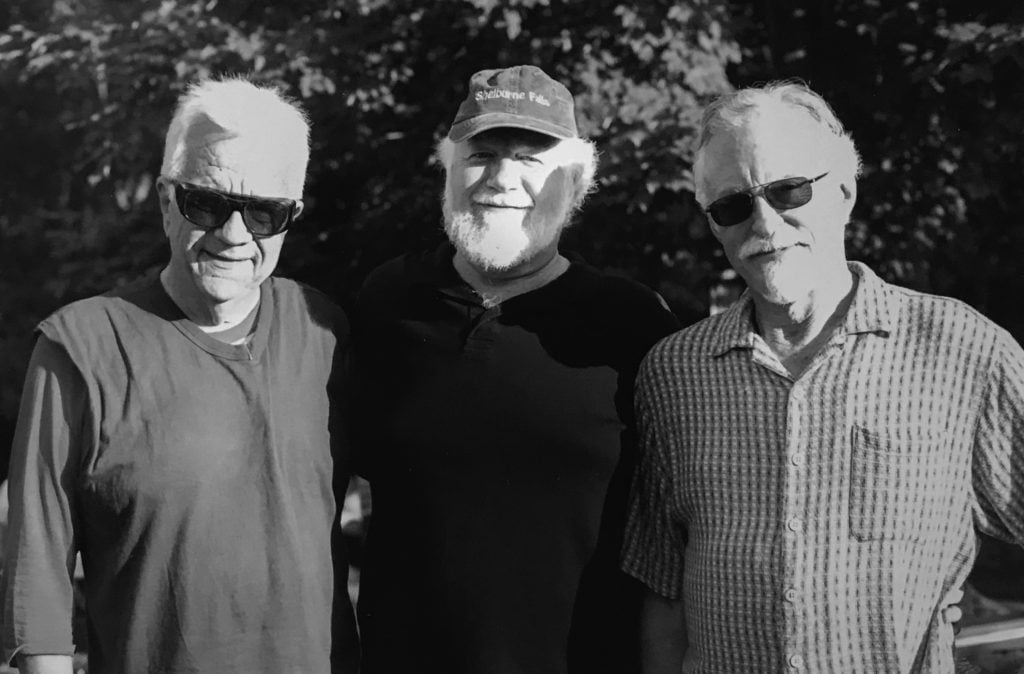
John was born on July 7, 1867, son of Nicholas and Rachel Bandi, the oldest of 6 children. His father had immigrated from Switzerland in 1847. John married Mary Hunnell on September 5, 1888. Mary’s mother had immigrated from Switzerland as a child about the same time. They had a daughter named Lulu and a son named Charles. His wife Mary was a sister to my grandfather.
John taught my father to play the fiddle and they played at square dances and community gatherings. John died July 29, 1959 at the age of 92 and is buried at Fletcher-Otto Cemetery.”
Curious, I logged on to Google maps, but I couldn’t find Bandi Ridge Road. Hmmm.
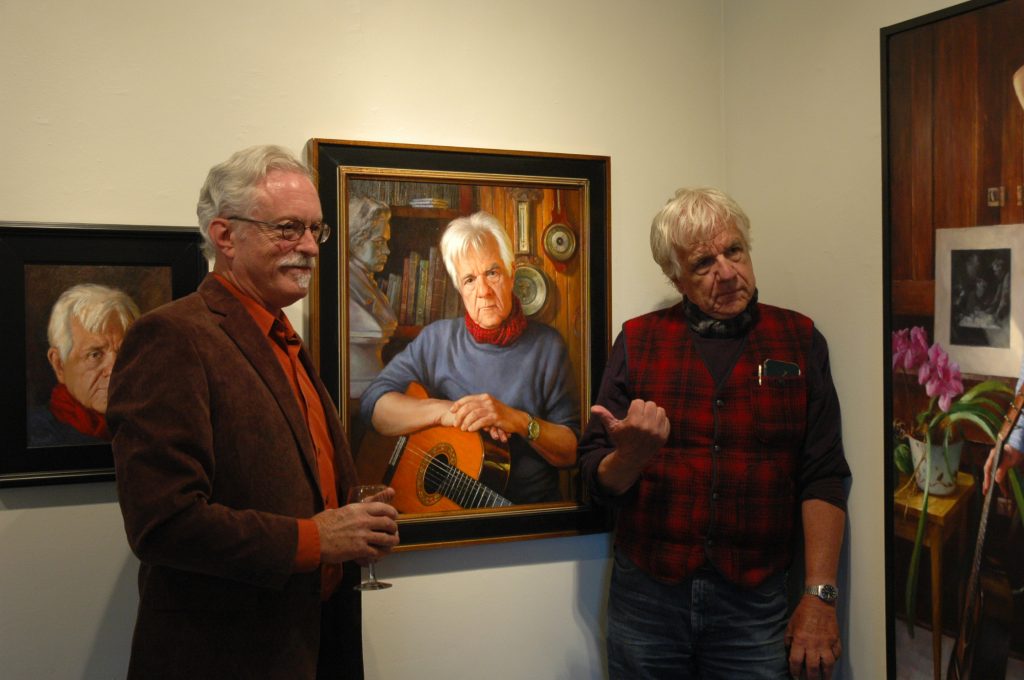
Googling again, later that day, I found Dick Harrington, a historian from Monroe County. He spent a long time searching his archives for any mention of the Bandi name. What he found was mostly U.S. Federal Census Bureau documents, from 1870, 1880, 1900, 1910 and 1940, and County Marriage, Birth, and Death records. There wasn’t much there that I hadn’t already found, but there was something of interest. While the County records all spelled the name B-a-n-d-i, the U.S. Census records alternated spellings randomly, sometimes B-a-n-d-i, sometimes, B-o-n-d-i. Seems like the confusion over Bandi’s name goes way back. I went back to Google maps, and sure enough, I found Bondi Ridge Road. Unfortunately, all of my research did not produce a single photo of John W. Bandi.
Lost John actually called me the next day (I should note that he now mostly goes by the name J.D. Hutchison). He’d heard about my research from Greg, and wanted to help if he could. “I can’t tell you too much,” he said, “but I did know old Bandi. You may want to talk to Zekey, too.” Zekey was his nephew, little Zeke, or Robert, Jr., the son of J.D.’s banjo playing brother. A fine mandolinist, he’d inherited the Zeke moniker from his dad. Bob was now, well, just Bob. Recently, Zeke recorded one of the Bandi/Seed tunes, Sleepy Eyed Joe, with Tim O’Brien. This is some of what Tim has to say about Zeke, and The Hutchison Brothers, on his website:
“Zeke Hutchison, from Belmont County Ohio, is one of the very best unsung mandolin players in the world. He comes by the music naturally, having grown up hearing his father Robert and Uncle J.D. play banjo and guitar. As the Hutchison Brothers they recorded two Bluegrass albums for Vetco records in the mid 1970’s. J.D. and Robert learned music from their father J.W. (the Seed) Hutchison who was a fine fiddler. I have a tape of J.W. (the Seed) playing this tune with J.D. on guitar, probably recorded in their Barnesville living room.
The Hutchison Brothers were some of the best Bluegrass players in the Wheeling area. I often sat in with them on guitar and fiddle, and I recorded a few tracks with them on their second LP. (Tim plays twin fiddle with Greg on a J.D. original, and guitar on a tune Greg composed, Empty Pocket Blues.) Hot Rize eventually recorded three of J.D.’s songs – Ain’t I Been Good To You, My Little Darlin’, and Money To Burn.”
I called Zeke, and between him and J.D., the following story emerged. As a young man, the Seed had played locally around Barnesville and Belmont county, in a guitar duet with his brother, Buster. When he started his family with Emma Jane, he more or less laid down his old guitar and got a job. He worked for Garvin’s Dairy, driving a milk truck and picking up milk from the many small dairy farms in the area. Several of the old farmers played the fiddle and the Seed took a keen interest. He was amazed by the instrument and wanted to learn to play. The farmers would tell him, “You need to meet old Bandi.”
He finally tracked Bandi down, in Woodsfield, not far south in Monroe County, and talked him into giving him lessons. The Seed studied with Bandi for years and they became close friends. J.D., as a boy, would accompany the Seed to his fiddle lessons.
“Dad would say ‘C’mon, Johnny. Grab your accordion and let’s go see Bandi. I would take my accordion or a guitar, and we’d visit for hours. Old Bandi would play a tune, and then make Dad play it over and over ‘til he got it right. Then he would lean back in his chair, look at me with a tear in his eye, nod toward Dad and exclaim, ‘Best damn student I ever had!’”
J.D. and the Seed once took Bandi, who was in his mid-80s, to a fiddle contest in St. Clairsville. “He won the damn contest! He played a tune that he called The Wind That Blowed The Barley Over.” J.D. laughed. “It was probably The Wind That Shakes The Barley.”
According to Zeke, Bandi could read some music as well as play by ear and had learned some of his tunes from books. “It’s anyone’s guess what those books were or where they ended up,” he said.
Bandi was already long dead when Ward Jarvis, a West Virginia fiddler, relocated to the Athens area and lived there at the same time as J.D and Bob. (Jarvis was another one of the musicians from southeast Ohio whom Jeff Goehring had managed to field record.) Ward got to know the Seed and his sons and was always impressed with the Seed’s fiddling.
“Ward was a friend,” J.D. said. “Bob and I would take a guitar and banjo and visit him at his home. We’d play a bunch of tunes and then take him out for some ice cream.” Greg got to know Ward as well and was instrumental in disseminating many of his tunes. Jarvis had learned several of them from blind fiddler Ed Haley. Several years ago, Brandon Ray Kirk—a West Virginia historian—posted this on his wonderful website:
By the mid-1990s, after several years of research, word had begun to leak out about my interest in Ed Haley. Around the first of 1995, Bluegrass Unlimited ran a story that prompted Bob Hutchison, a musician from Alledonia, Ohio, to write me.
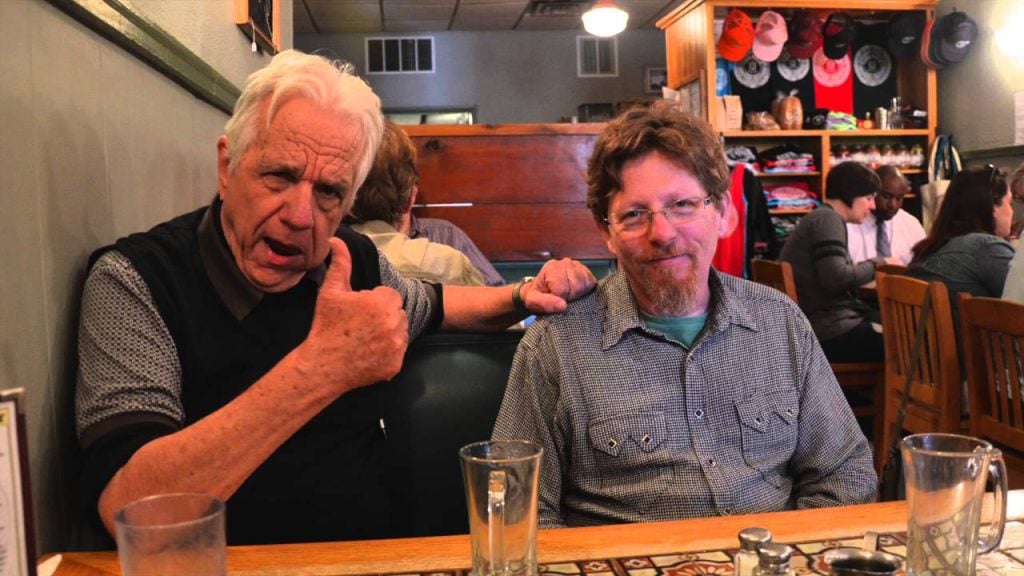
“I played with an old fella down in Athens county (Ward Jarvis) who had played a lot and learned a lot from Ed Haley,” he wrote. “He played banjo with Ed and learned a lot of his tunes when he was a young man. He said Ed was the best he’d ever seen. Ward was in his 70’s when I got to know him and he was no slouch himself on the fiddle. He said Ed was big on different tunings on the fiddle. I learned the Icy Mountain tune from Ward that he had learned from Ed. Other tunes I remember him crediting Ed with were Camp Chase, Jimmy Johnson, Three forks of Reedy. Banjo Tramp was another of Ed’s. (Banjo Tramp appears on the Hutchison Brother’s second album.) Ward has been dead for several years… Ward was originally from Braxton Co. W.Va.”
“Hutchison is a powerful noter!” Jarvis is said to have once stated about the Seed. I asked Zeke what he meant exactly. “Well, we will never know for sure,” he said, “but I would guess that Ward meant that the Seed’s intonation was very good, and that he had good use of his noting hand.”
Finally, I asked Tim O’Brien to share some thoughts on the Seed, and about the time he’d spent the night in “the Big House”, as a guest of J.D.’s. What he wrote is as gracious and touching as any tribute I’ve ever read. Here it is:
“I came downstairs in the morning to a welcome cup of strong black coffee. The Seed had been up for a while already, and had a few fiddles out on the dining room table. There were several more fiddles in cases on shelves behind him. He wore matching hunter green work clothes, and I think he was smoking a cigar. He didn’t play, but started interviewing me, asking me to play for him.
I already had great respect for J.D. and Robert’s music, and found them to be very open in sharing their music. They’re humor and their talent were magnetic. So this was their father who was as crazy for music as his sons were. He smiled most of the time and most words out of his mouth were followed by chuckles. We talked about different kinds of fiddles, the shape of a Steiner or a Hoff, and different kinds of fiddle tunes. I showed him my fiddle and played him a few tunes I’d been learning. He asked me if I knew any hornpipes, so I played a few. Then he asked if I played any jigs. (I probably didn’t.) I was a little nervous, self-conscious, but J.D. and the Seed were really friendly and made me feel very welcome.
J.D told me that the Seed was a very good guitarist, that he played instrumental pieces like “Spanish Fandango” as well as backing his and Emma Jane’s singing of country songs. It seems obvious that J.D., Robert, and Robert’s son Zeke inherited the Seed’s love of music and humor. J.D. is a fine poet, songwriter, and musician, but he’s also a good cartoonist. I remember the Seed looking at some of J.D.’s drawings, both of them chuckling. If I’m not wrong, the Seed also drew cartoons.
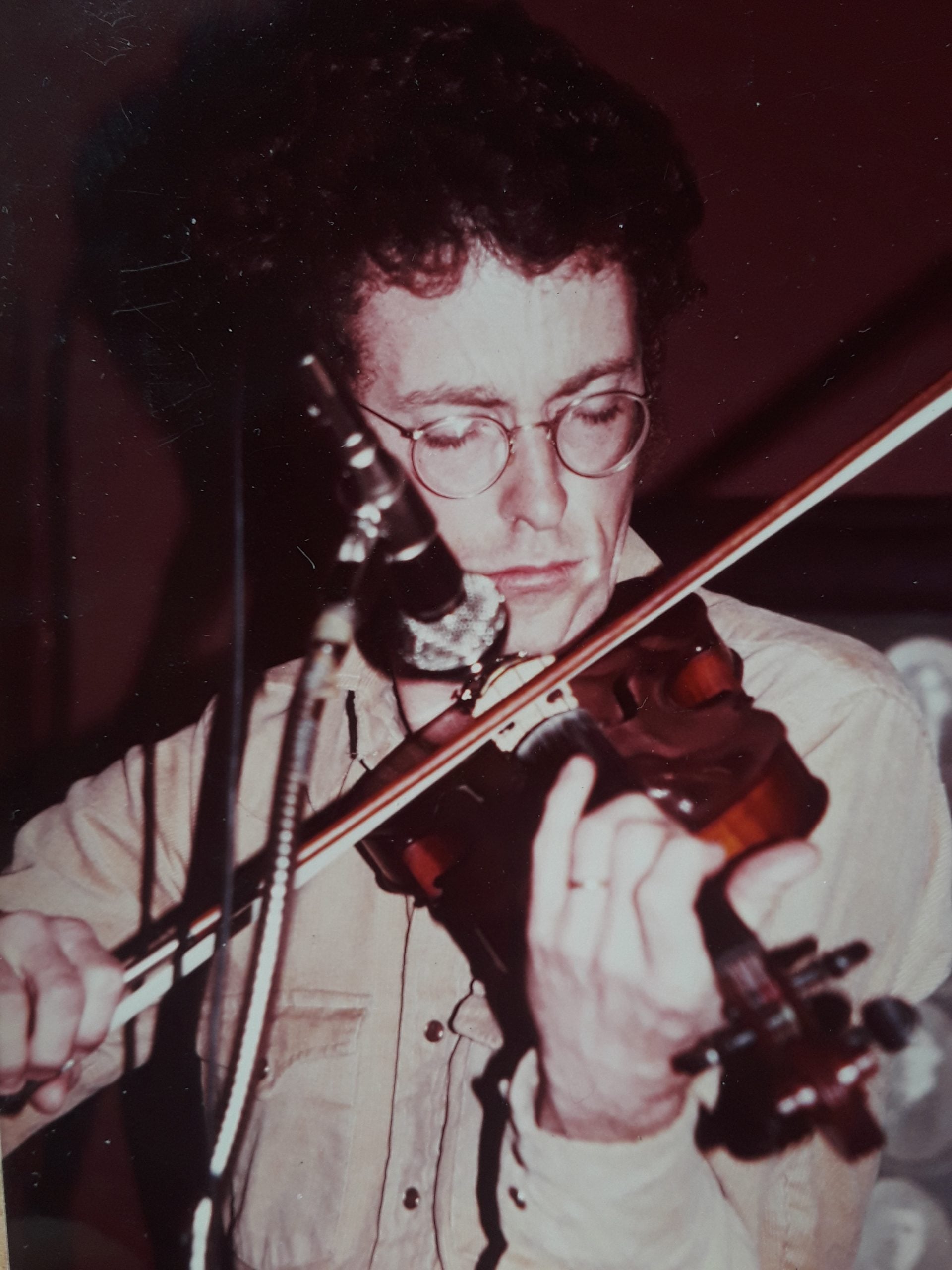
I treasure the many friendships and acquaintances I’ve had with musicians over the years. For traditional musicians, finding a friendly elder like the Seed is like finding a piece of gold on the ground. The Seed represents earlier steps on the path of tradition, and reassurance that we’re all walking the same path. They teach us by example, and they help push us forward.”
John W. “Old Bondy” Bandi. John W. “The Seed” Hutchison. Ward Jarvis. Greg Dearth. Walking the same path. Thanks for the tunes boys!
John Bandi died in 1959. The Seed died in 1980, but not before I got to meet Emma Jane and him once at the Big House. Ward Jarvis died in 1982. Greg Dearth has always made his living as an artist and musician and lives in Franklin, Ohio. He is a multi-instrumentalist, but now mostly plays guitar. He still owns several fiddles that he bought or swapped for from the Seed. One of those, “Big Red” as the Seed called it, had belonged to Old Bandi and is one of Greg’s favorites. Peach Hampton went on to law school and then returned to Barnesville. He was a trial lawyer there for many years, and for a time, prosecutor in Monroe County where Old Bandi had lived. He is now retired, still pickin’, and living in Western Massachusetts. J.D. Hutchison is still performing and writing songs and haunting the music stores and cafes of Athens, Ohio. His brother, Bob Hutchison lives not far away, in Alledonia, and doesn’t play his banjo much anymore due to some ongoing medical issues. He was always my favorite bluegrass banjo player and his singing was equal to J.D.’s – literally. They would do this thing that always killed me, when they sang two-part duets. They could switch parts, back and forth, in the middle of the song, and even if you were standing right in front of them, you couldn’t tell who was singing which part!
Tom Harley Campbell’s songs have been recorded by Ralph Stanley, Seldom Scene, Tim O’Brien, Claire Lynch, Larry Sparks, Valerie Smith, Chris Thiele, and many others. His first novel, Satan’s Choir, set in Dayton, Ohio, and introducing homicide detective John Burke, will be published this summer. For more info go to: tomharleycampbell.com
For more information on J.D. Hutchison, go to: www.jdhutchison.com
For more information on Greg Dearth’s artwork, go to: www.gregdearth.com
For more information on Zeke Hutchison, go to: swingbigmusic.com/about-us/
For more information on Tim O’Brien, go to: www.timobrien.net
For more information on The Hotmud Family, go to: www.hotmudfamily.com
Share this article
2 Comments
Leave a Comment Cancel Reply
This site uses Akismet to reduce spam. Learn how your comment data is processed.
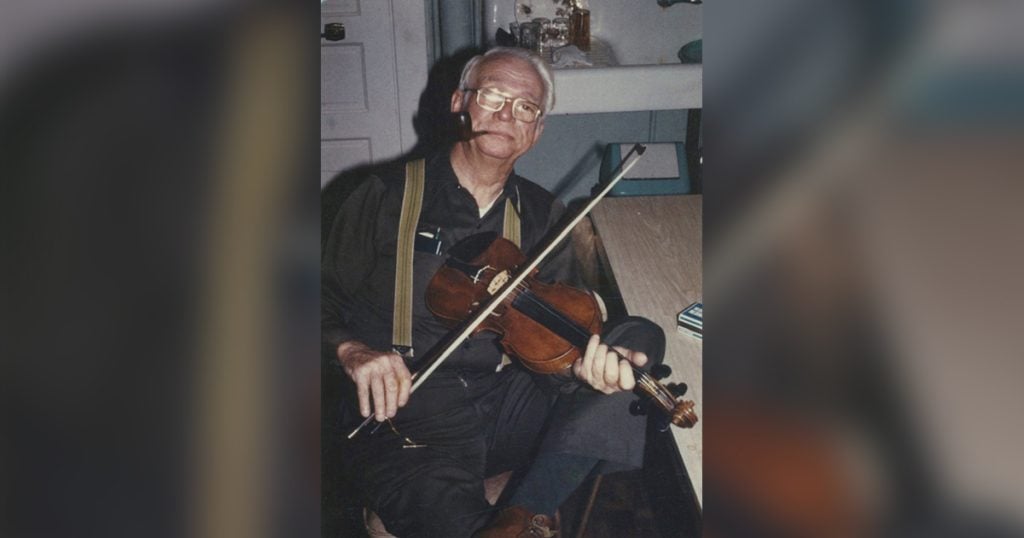
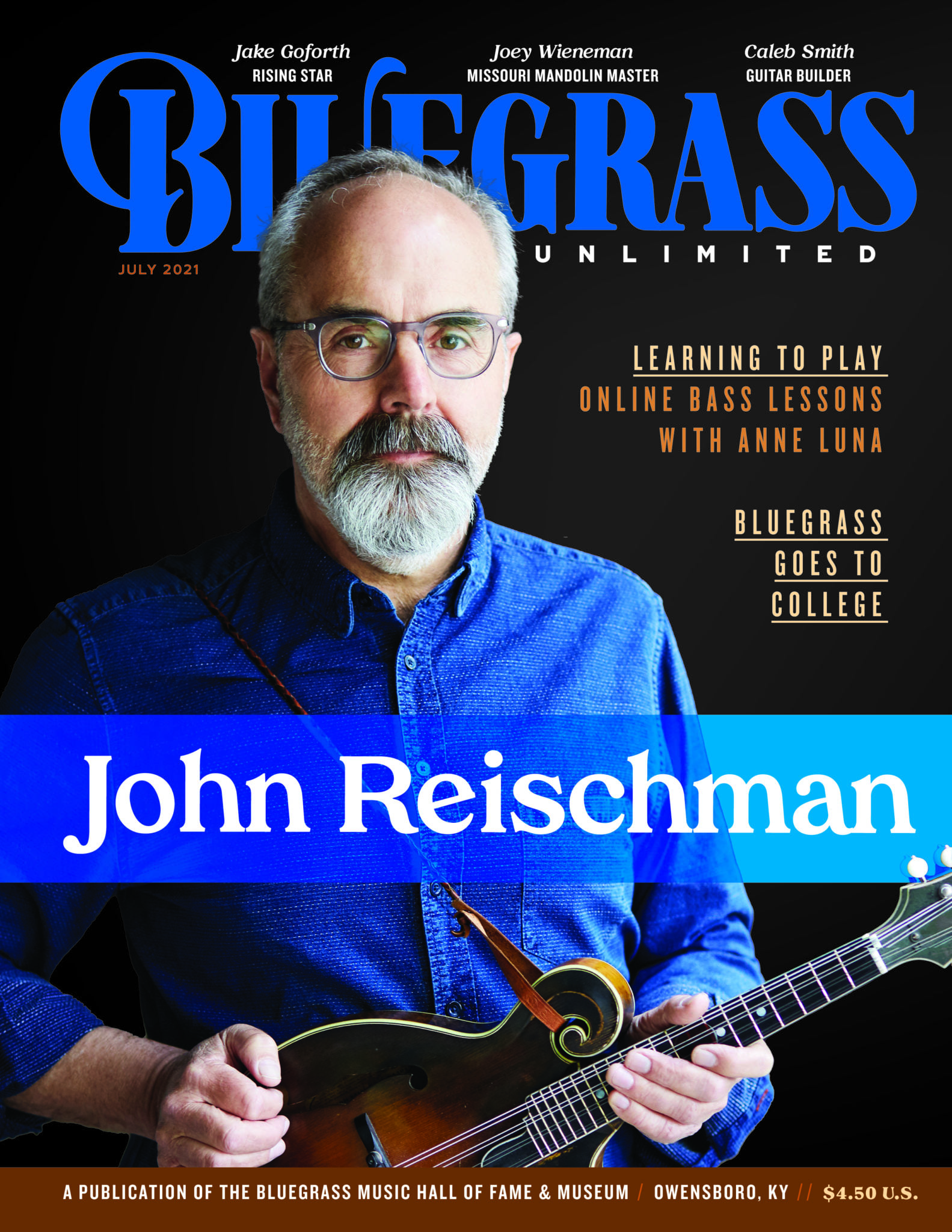
I’m Lora Murphy, Little Willie Hagan’s (Ron Murphy-bass) widow, and I really enjoyed reading your article, Tom Harley Campbell. I remember you and the rest of the Hot Mud Family, Lost John and Zeke, and of course, Greg Dearth and Peach. Peach was actually Ron’s Best-man in our Wedding in 1974. We started our own band The Muddy River Band shortly after the Hagan Brothers disband.
Sadly, Robert (Zeke/Sour Bob) Hutchison passed away on Aug. 2, 2021, while John (J.D.) passed three months later, on Nov. 2, 2021.